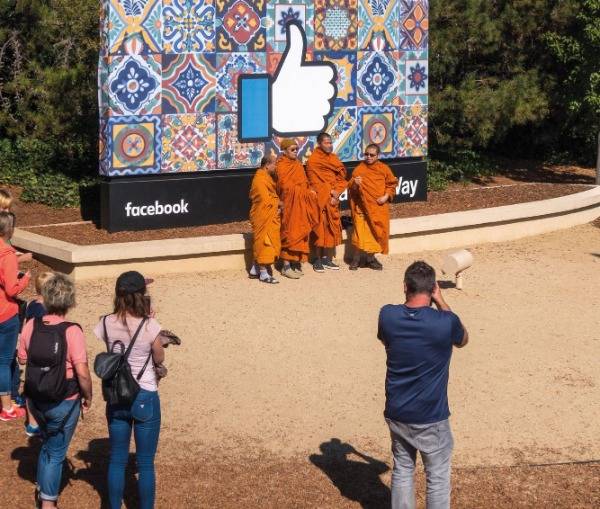Whether it’s been driven by politicians wanting to make a splash during conference season, or events in colleges and courtrooms around the country, we’ve been told that it’s now time for a “debate” on whether Muslim women in Britain should be allowed to cover their faces in public. As you might expect, it’s led to heated discussion – but in the process, a number of points have become conflated. I’ve tried to separate them out below.
Are women who wear niqab a terrorist threat? No.
Stories about the rights of women in the UK are plentiful. This one, for instance, about the sexual abuse of female immigrants in detention, made the Observer’s splash last Sunday but was largely ignored by the rest of the press. The reason why veiled women – a small proportion of Britain’s Muslim population, let alone the population as a whole – attract such media interest is because their story dovetails with the often unspoken assumption that Muslim=terrorist.
In the wake of the horrific murder of Lee Rigby earlier this year, we have seen a resurgence of anti-Muslim feeling, from attacks on mosques, to far-right rallies, to columns in serious newspapers on “how to spot a terrorist” that helpfully state: “Someone may adopt traditional Arab dress or abruptly abandon it (so as not to attract attention)”.
It is in this context that we must see interventions like that of the Sun yesterday.
The Sun – which, as many people have pointed out, is hardly a disinterested observer when it comes to what women do or do not wear – seems less interested in fighting oppression than presenting veiled women as a pressing security threat. Likewise, it’s worthy of note that the Birmingham college whose ban on face veils was overturned last week, justified the ban for “security reasons” rather than, say, on the grounds of secularism.
Opposing this trend is not about “defending the niqab”, but about resisting the current wave of islamophobia.
Are there progressive arguments against religious face coverings? Yes.
Earlier this year, Terri Murray put forward a feminist argument in New Humanist against religious face coverings. And this is not a case of Muslims vs non-Muslims. As Shamim Chowdhury argued for the Huffington Post, there is no compulsion in Islam to wear the niqab. And while I very strongly disagree with Yasmin Alibhai-Brown’s unhelpful comparison of niqab-wearers with members of the Ku Klux Klan, I do think she is right to argue against the influence of religious conservatives, as she does here:
The clothes symbolise an attempted takeover of the religion just when believers are looking for liberty, autonomy, democracy and gender equality. Malala Yousafzai doesn’t hide her determined face. Nor do our female Muslim MPs and peers or civil rights lawyers.
Is there a risk people are coerced into wearing the burka or niqab and do we need to find ways to support them? Yes.
As the British Ex-Muslims Forum has pointed out, people can be forced or shamed into adopting certain forms of religious dress, or restricting their behaviour in one way or another. It can happen in families, in communities – or it can be promoted by institutions, such as the schools mentioned in this Times report (£) that allegedly demand girls as young as 11 cover their faces. It’s not something exclusive to Islam, or to ethnic minority communities, or even to religion – but if you’re living in a country where your religious or ethnic background already marks you out as somehow suspect (see point 1), then it’s all the more important people feel they can speak openly.
Does that mean every woman who wears the niqab is being forced to? No.
On Monday, we published a piece by Zakia Uddin, which expressed her frustration that once again Muslim women seemed to be shut out from the debate on the veil. This was met with a number of patronising responses along the lines of “But how would you get their honest wishes and not the opinion of the husband, father, uncles or brothers?” One might say a first step would have been to read Zakia’s piece in full.
Yet for some, clinging to a belief that Muslim women couldn’t possibly have minds of their own is a way of avoiding an inconvenient truth: many women choose to wear the niqab, and when asked, are capable of explaining why in perfectly clear terms. Shalina Litt, for example, told the Huffington Post that her choice was “an act of devoted worship” that she found “a liberating experience”, even: “When I sit down with an interviewee, suddenly they aren't looking at my clothes or face, or judging how I look but listening to what I say. It's a real bonus."
To welcome these perspectives is not necessarily to agree with them – but as Zakia argued in her piece, to automatically assume that any woman who covers her face is doing so from fear (and therefore can not be relied upon to tell the truth about her motivations) is to exclude them from the debate.
Should the state dictate what women can or can’t wear? No.
This is a basic point of principle – and it’s one on which both left and right wing commentators can agree. Daniel Hannan argued this eloquently in the Telegraph, while Gary Younge tweeted:
States imposing veils should be opposed. States banning veils should be opposed. Because states have no right to tell women what to wear.
The National Secular Society opposes “a general ban on the wearing of the burka and niqab”, but states that “religious freedom is not absolute” and supports certain requirements to remove a face veil in situations where people need to be identified. Precisely which situations, how these are negotiated, and whether people are being treated fairly and without being stigmatised, seem to me to be the real areas for debate. But we can only reach that point if we recognise the islamophobic nonsense aired in much of the press for what it is, and if the debate is one that includes the people directly affected rather than being conducted from on high by politicians and pundits out for a few cheap headlines.

